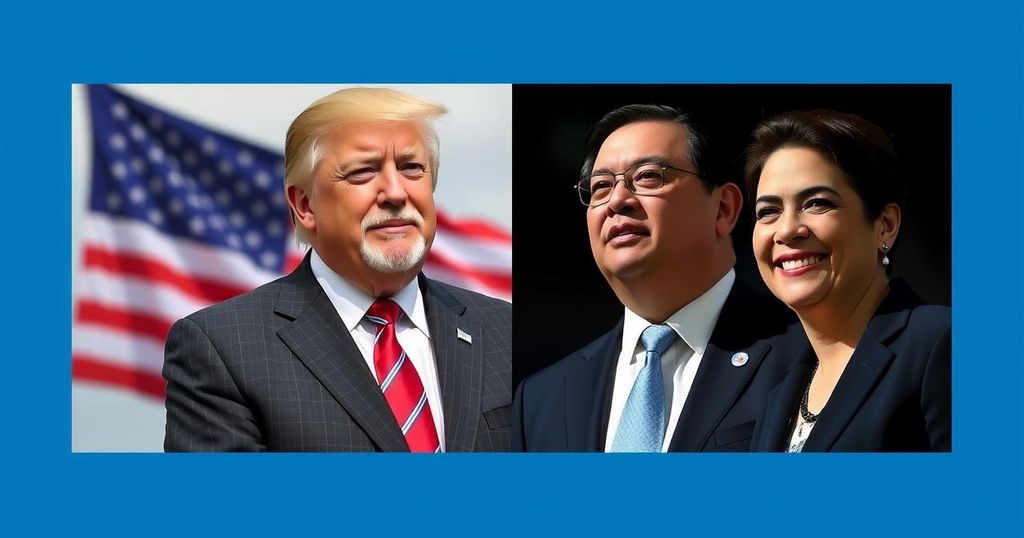As President-elect Donald Trump prepares for his inauguration, invitations have been extended to Argentine President Javier Milei and El Salvador’s President Nayib Bukele. This marks a departure from the tradition of excluding foreign leaders from U.S. inaugurations. Milei plans to attend, while Bukele is considering his invitation based on security reasons. These developments suggest a potential shift in U.S.-Latin American diplomatic relations, influenced by the economic agendas of the new leaders.
As preparations unfold for President-elect Donald Trump’s inauguration, a notable shift in tradition is taking place with the confirmed attendance of foreign leaders from South America. Argentine President Javier Milei has disclosed his intention to attend the inauguration, marking a historic break from the long-standing practice of keeping foreign heads of state away from such events. According to his spokesperson Manuel Adorni, this is the first instance where a leader from Argentina has received this invitation, signaling a potentially new international approach from the incoming administration. Meanwhile, the Salvadoran ambassador to the United States indicated that President Nayib Bukele also received an invitation and is currently contemplating his attendance based on security considerations.
During a recent discussion, Trump mentioned that other world leaders, including Chinese President Xi Jinping, have been invited, although Xi has yet to confirm his participation. Trump also addressed inquiries regarding whether Ukrainian President Volodymyr Zelenskyy had been invited, stating, “the Ukrainian leader had not been invited, but if he’d like to come, I’d like to have him.” Despite the inquiries, Trump’s transition team remained unresponsive concerning the full list of invitees.
The emergence of leaders like Milei into U.S. political gatherings signifies a potential shift in diplomatic relations. President Milei made headlines for being the first foreign leader to meet Trump post-election. This meeting occurred at Trump’s Mar-a-Lago estate, where Milei, a self-identified “anarcho-capitalist,” drew parallels with Trump’s administration’s focus on deregulation and government efficiency, a notion similar to the austerity measures he has implemented in Argentina. These include significant budget cuts and layoffs aimed at stabilizing Argentina’s ailing economy, which has raised cautious optimism among economists.
The anticipated attendance of these South American leaders at the inauguration not only underscores a departure from previous customs but may also lay the groundwork for stronger bilateral relations, particularly in navigating Argentina’s financial challenges with institutions like the International Monetary Fund. Such engagements could prove crucial for Argentina amidst its looming debt obligations.
The article addresses the growing trend of foreign leaders attending U.S. presidential inaugurations, a practice that has historically been avoided. The significance lies in Argentine President Javier Milei’s acceptance of Trump’s invitation, alongside the consideration of Salvadoran President Nayib Bukele. The context evokes discussions surrounding the evolving nature of U.S. diplomatic relations and how these leaders perceive potential collaborations with the incoming administration, especially in the face of economic challenges in their respective countries.
In summary, the invitations extended to Presidents Milei and Bukele for Trump’s inauguration represent a significant shift in diplomatic practice that could reshape U.S.-Latin American relations. With Milei’s radical economic reforms and the potential for new economic agreements, the outcome of this engagement may prove pivotal for Argentina. Observers will keenly observe the implications of these developments on future relations between the U.S. and these nations, especially concerning economic stability and international cooperation.
Original Source: apnews.com






